What's New
Displaying results 2351 - 2360 of 4052
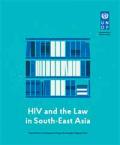
Resource | Publications,
This report was prepared for the United Nations Development Programme (UNDP) Bangkok Regional Hub and the Association of Southeast Asian Nations (ASEAN) Taskforce on AIDS as part of the ASEAN Cities Getting to Zero Initiative, to produce evidence on the legal environments affecting HIV responses among key populations in ASEAN states and Timor-Leste.
The report provides a regional overview and summary of laws, police practices, and related policies. The report includes examples of protective laws and good practices from each country that can inform efforts to improve the legal environment for HIV responses. In addition, ten individual country summaries were prepared as part of this study, which were shared as internal working documents with ASEAN Task Force on AIDS focal points and members of the United Nations Country Teams working on HIV and AIDS in the ten ASEAN countries.
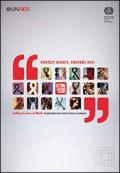
Resource | Publications,
This publication is a collection of messages from Workers’ organizations in support of the "Getting to zero at work" campaign and the VCT@WORK initiative.
The messages contained in the book demonstrate the commitment of trade unions in implementing a rights-based response to HIV and AIDS in line with the ILO Recommendation concerning HIV and AIDS and the World of Work. Workers have also provided strong messages in favour of the ILO’s Voluntary Confidential Counseling and Testing initiative (VCT@WORK) for workers.
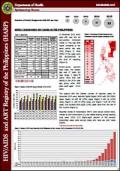
Resource | Fact Sheets,
In December 2015, there were 650 new HIV Ab sero-positive individuals. This was 28% higher compared to the same period last year (509). Most (96%) of the cases were still asymptomatic at the time of reporting.
Ninety-seven percent were male. The median age was 27 years old (age range: 2 years-78 years). More than half belong to the 25-34 year age group while 28% were youth aged 15-24 years.
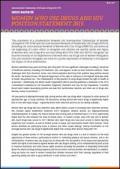
Resource | Publications,
Women-identified drug users and those also living with HIV face significant challenges accessing a broad set of healthcare services, including HIV treatment, care, and support, as well as harm reduction services. These challenges stem from structural, social, and cultural prejudice stemming from punitive drug policies around the world.
This statement is a collaboration between the International Community of Women Living with HIV (ICW) and the International Network of People who Use Drugs (INPUD), including the International Network of Women who Use Drugs (INWUD), and serves as the beginning of a joint effort to recognize and address the specific needs and rights of women who use drugs who are also living with HIV. ICW and INPUD recognize the intersectionality of the experiences of women who use drugs and of women living with HIV, and therefore recognize the need for a public expression of solidarity to strengthen the impact of both movements.
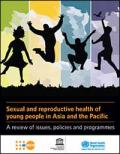
Resource | Publications,
A significant proportion of young people in Asia and the Pacific are sexually active, and while for many the onset of sexual activity is associated with marriage, an increasing number are initiating sex before marriage. The available information indicates that most young people are ill-prepared for this transition, having insufficient knowledge and life-skills to negotiate safe and consensual relationships and facing considerable barriers to accessing services and commodities needed to avoid unsafe sex and its consequences.
The report provides recommendations and identifies priority areas where urgent focus is needed to prevent early and unintended pregnancy, unsafe abortion, sexually transmitted infections and HIV. And to ensure, in this era of the Sustainable Development Goals, that no young person is left behind.
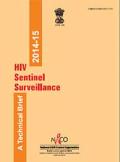
Resource | Publications,
The 14th round of HIV Sentinel Surveillance (HSS) was implemented among Antenatal Clients (ANC) in 35 States and Union Territories (UTs) of India in 572 districts during January-March 2015 except for Andhra Pradesh and Telangana, where HSS was implemented during March-May 2015.
This report presents the findings of the 14th National HSS among ANC clinic attendees and shows prevalence levels and trends of the HIV epidemic from 2003 to 2014-15. Though the 14th round of HSS was carried out among ANC only, this report also includes data on HIV prevalence among High Risk Groups (HRG) and Bridge Populations from earlier rounds of HSS.
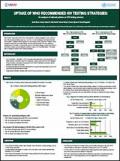
Resource | Fact Sheets,
WHO recommends serial HIV testing strategies for high (>5%) and low (<5%) prevalence settings. In both strategies, rapid diagnostic tests (RDTs) within a validated national algorithm can accurately provide a diagnosis. However, recent publications show that poor quality testing, and inaccurate test results can occur leading to misdiagnosis of HIV status. In particular the use of a “tie-breaker” strategy, in which the result of a third assay is used to resolve discrepant results by ruling in an HIV-positive status. This review aims to assess the uptake of WHO testing strategies.
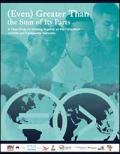
Resource | Publications,
“(Even) Greater Than the Sum of Its Parts: A Case Study on Working Together as the Consortium of MSM and Transgender Networks” documents the impact of the Consortium’s efforts and describes the added value of collaboration. The primary context of the case study is the Consortium’s implementation of two grants by the Robert Carr civil society Networks Fund (RCNF) over the past two years. The Case Study highlights multiple examples of how working in a Consortium has benefited member networks and MSM and transgender communities in general.
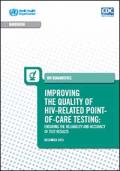
Resource | Tools,
This handbook has been created to address the weaknesses identified in existing point-of-care testing programmes and to assist service providers in adhering to a new set of minimum standards that promote and ensure quality assurance for HIV-related point-of-care testing.
This handbook describes the quality assurance cycle, a three-phased process developed to assist health-care providers and stakeholders in planning, implementing and sustaining quality assurance for HIV-related point-of-care testing.






